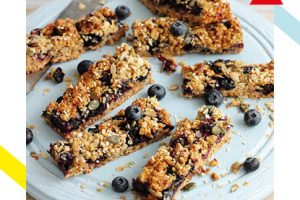Can the Fasting Mimicking Diet help you live to 110?

A lot of people think the various diet books the experts tell us about are nothing more than passing fads. After all, there have been hundreds of different suggestions down the years. Well, Italian-American biogerontologist Valter Longo thinks he has developed a solution that’s here to stay.
Valter has been hailed as the king of the “fasting movement”, and his Longevity Diet has been backed by millions of dollars in research, allowing him to claim it can help reduce the risk of diabetes, cancer, Alzheimer’s and heart disease.
Dr Longo’s Fasting Mimicking Diet (FMD) is explained in his book The Longevity Diet, which outlines how an FMD approach works, reveals the results his research has yielded and includes the impact this could have on people everywhere…
“Are carbohydrates, proteins and fats good or bad? How about periods in which we don’t eat, or eat very little? It may surprise you, but every dietary component can be both good and bad, depending on their type and level.
“Let’s begin with the fundamentals and therefore with the method used to determine whether a food can help you make it to the ripe old age of 110 completely healthy, or develop a disease in your 40s. In my book, I discuss the importance of making decisions based on five pillars of science and medicine including epidemiology, clinical studies, basic research, studies of centenarians and studies of complex systems, like cars and aeroplanes.
“By using this five pillar system, it’s possible to come up with recommendations that are much safer and not likely to change in the next few years. A fundamental feature of this system is that it combines science, technology and history. For example, the fashionable ‘low fat’ dietary choices of 20 years ago have now been replaced by ‘low carb’ diets, creating confusion in many people.”
Does fasting make you live longer?
“Is a low-carb, high-protein diet recommended for health and longevity? Epidemiological, basic research, clinical and centenarian studies all indicate this diet will shorten your life and promote a range of diseases. The common mistake selecting the low-carb and similar diets is to focus on a few studies that show such a diet can result in weight loss and, in some cases, may have short-term beneficial effects on a few disease risk factors.
“In contrast, based on the five pillars system, the diet is more likely to help you make it to 110 and healthy is a low-protein, high-carb and relatively high-fat (but mostly vegan) diet. This statement is often met with strong disagreement because many confuse healthy foods that contain carbohydrates with less healthy foods, like pasta and rice, or unhealthy ones, like sugary drinks and sweets.
“Most people are unaware legumes like beans and lentils and those in vegetables like carrots and green beans, are good sources of carbs. In contrast, carbs obtained from eating high amounts of pasta, bread and rice are starches that are processed relatively rapidly by your digestive system and within a few hours become the same sugars contained in sweets and cola. Thus, eating a dish of pasta is equivalent to five tablespoons of sugar.”
The problem with excess protein
“The low-carb movement has unavoidably resulted in an even bigger problem: a high protein diet. Although a sufficient intake of proteins (approximately 0.35g per lb of body weight per day) is important, the low-carb diet has pushed the intake of protein from animal sources to higher levels. Considering proteins, and particularly animal proteins, activate the two sets of genes that are widely recognised to accelerate ageing (Tor-S6K and PKA), it is not surprising a high intake of meat, cheese, etc is associated with a shorter lifespan and a range of diseases.
“The detrimental role of a high animal-based protein diet on health is supported by most of the five pillars. Protein intake should be maintained low but sufficient, and come mostly from legumes and fish.”
Finding the balance
“Fats should represent about 30% of the daily calorie intake, but its source is as important as its levels. Relatively high intake of olive oil, nuts and fatty fish like salmon is associated with a longer and healthier lifespan, whereas high intake of butter, cheese and other animal fat-based foods is associated with a curtailed lifespan in both humans and mice. None of the populations with record longevity adopt a high animal fat diet, but some do have a relatively high intake of plant-based fats.
“My lab has spent 25 years searching for drugs and periodic short-term dietary interventions that would allow someone to consume their preferred daily diet while achieving some (or many) of the benefits of an everyday ‘Longevity Diet’.
“The Fasting Mimicking Diet (FMD) is a low-protein, low-sugar, high good carbs and fats diet that lasts five days. It provides between 800-1,100 calories while achieving effects similar to water-only fasting. In animal studies, cycles of the FMD promoted regeneration in the blood, pancreas, nervous system and other organs, in many cases reversing either age-related defects or disease symptoms. In a human randomised clinical trial, monthly cycles of the FMD done for five days a month for three months reduced abdominal fat without cannibalising muscle mass, cholesterol, blood pressure, triglycerides, markers for cancer and cardiovascular disease in high risk people.
“FMD cycles appear to restore healthier levels of risk factors by removing damaged components at the cellular and organ levels. We suggest an obese person with disease risk factors should consume the FMD once a month, while a young athlete with an ideal diet should do it twice per year.
“A combination of a pescatarian diet with periodical FMD could maximise health and possibly longevity. It would not be surprising if regular cycles of the FMD, in addition to an ideal Longevity Diet, extend the healthy human lifespan by over 10 years.”
The Longevity Diet by Dr Valter Longo PhD is out now (Penguin, £9.99)
Did you know? The Okinawan Japanese have the world’s highest life expectancy (90 for women, 84 for men). They eat a 96% plant-based diet
Put these gems on your plate and you’re on your way to being an instant IF pro:
1. Oats: Start your day with seedy overnight oats for lots of slow-energy releasing fibre, plus the good fats found in golden linseed, sunflower and pumpkin seeds.
2. Avocado: Nutrient-dense avos can help stave off hunger, particularly in overweight adults. They are also high in monounsaturated fats and low in sodium.
3. Walnuts: Polyunsaturated fat-rich diets can help control satiety. Walnuts contain this good fat, which alters the psychological markers used to tell you you’re hungry.








